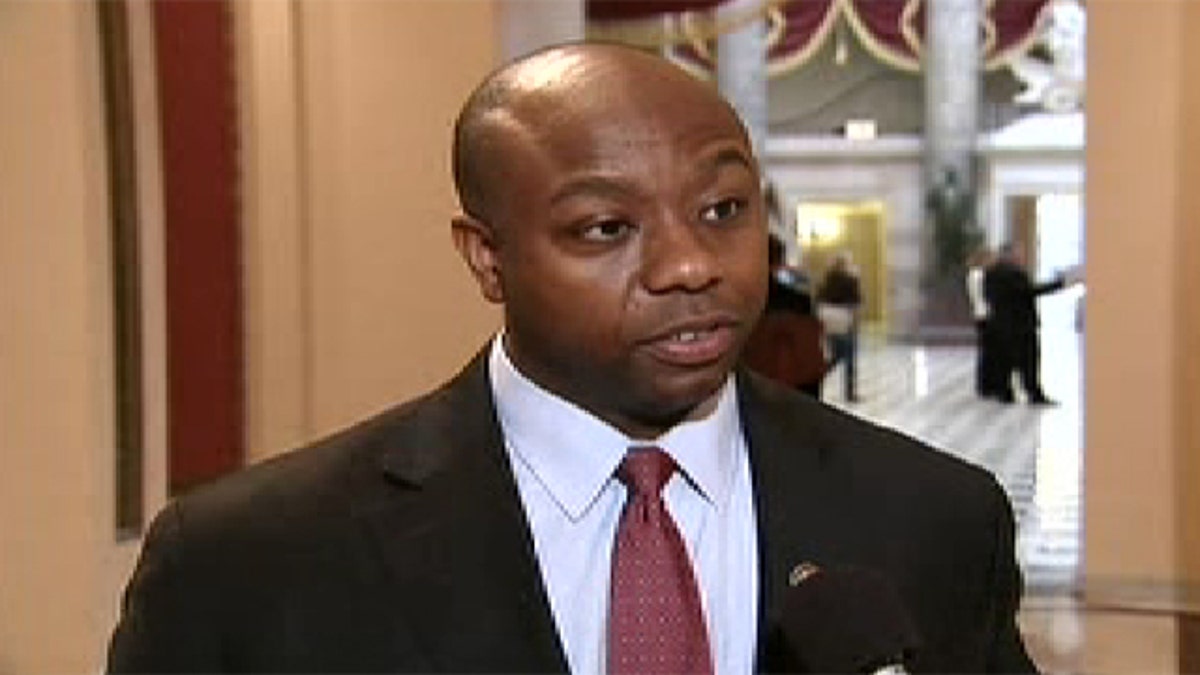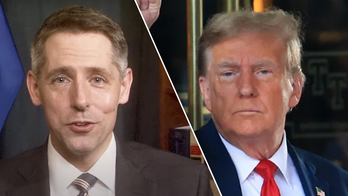
Feb. 11, 2011: Rep. Tim Scott, R-S.C., warns that a government shutdown is 'on the table' if Republicans and Democrats can't agree on spending cuts. (Fox News)
A government shutdown is on the table if Congress fails to reach an agreement on spending cuts, a freshman GOP congressman told Fox News on Friday, making him one of the few Republicans to publicly raise the possibility.
“I think nothing's off the table at this point,” Rep. Tim Scott of South Carolina said, warning that uncontrolled spending will inevitably lead to an impasse -- and ultimately a shutdown.
“Can the American government sustain the level of spending that we have today?” Scott asked. “There's no question that a shutdown is coming, whether we do it today or whether we do it in 20 years.”
Senate Democrats and House Republicans are currently at loggerheads over the size of a long-term spending bill designed to fund the government through the end of the fiscal year. House Republicans unveiled $100 billion in cuts Friday to that bill, which is expected to come up for votes in both chambers next week in the form of a seven-month measure known as a continuing resolution. The language of the 359-page House bill was posted late Friday.
Scott’s warnings come despite assertions from House leadership and other Republicans that they do not want these ongoing budget negotiations to result in a government shutdown.
“I don't know anybody who's talking about that as something they desire,” Republican Idaho Rep. Mike Simpson, a member of the House Budget and Appropriations committees, told Fox News.
But those assertions fall short of a guarantee from House Republicans that the leadership would not permit the government to shut down, which has many Democrats on edge.
“Leading Republicans are still threatening to shut down the government if they don't get everything they want – which includes taking cops off the street and cutting financial aid for college instead of cutting waste and excess, like $20 billion in government giveaways to oil companies that are currently raking in record profits,” Jon Summers, spokesman for Senate Majority Leader Harry Reid, D-Nev., wrote in a statement released late Friday.
Republican leaders pledged to cut $100 billion from President Obama’s fiscal year 2011 budget, which was never passed. The federal government has been operating on short-term spending bills since last October, and the $100 billion in proposed cuts come despite the fact that half the budget year is gone.
New Jersey Rep. Robert Andrews led a group of Democrats in a news conference Friday decrying such cuts.
"America won't grow if America won't learn, and America won't learn with 30 percent cuts to education," Andrews said.
"We need to cut, we need to grow, but let's do it responsibly,” Rep. Tim Bishop, D-N.Y., added.
Republicans acknowledge that they may not get every cut they’ve outlined but hold some cuts are necessary to restore fiscal discipline.
“That's the risk you run," said Ohio Rep. Jim Jordan, chairman of the fiscally conservative Republican Study Committee. "But that's how we do things in America. This is the process that's in place, so let's play it out. Right now what I'm saying is, things are headed in the right direction.”
The federal government is currently funded through a continuing resolution that expires March 4. If Congress fails to either approve the longer-term spending bill or pass another stopgap by the expiration date, most government operations will cease until more funding is approved—Treasury Secretary Timothy Geithner released new projections last week that the federal government would run out of money between April 5 and May 3 were that to happen.
In 1995, Republicans in Congress reached an impasse with President Clinton over elements of the Democratic president’s fiscal year 1996 budget, which resulted in a government shutdown after a short-term continuing resolution in mid-November.
Threatening a government shutdown is a risky game of chicken for Republicans to play— in 1995, public opinion generally sided with Clinton.




